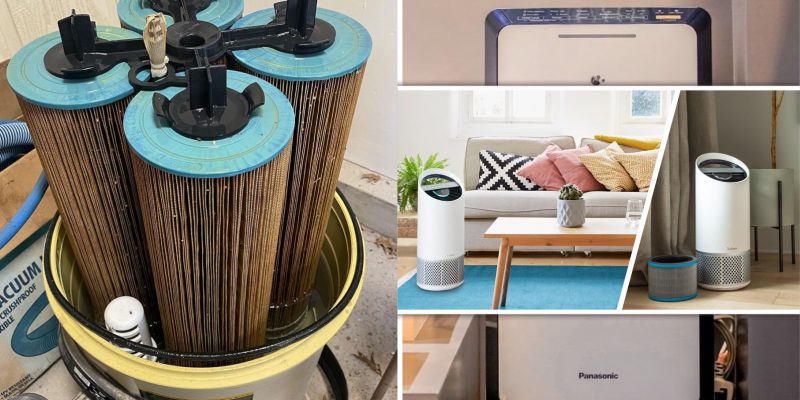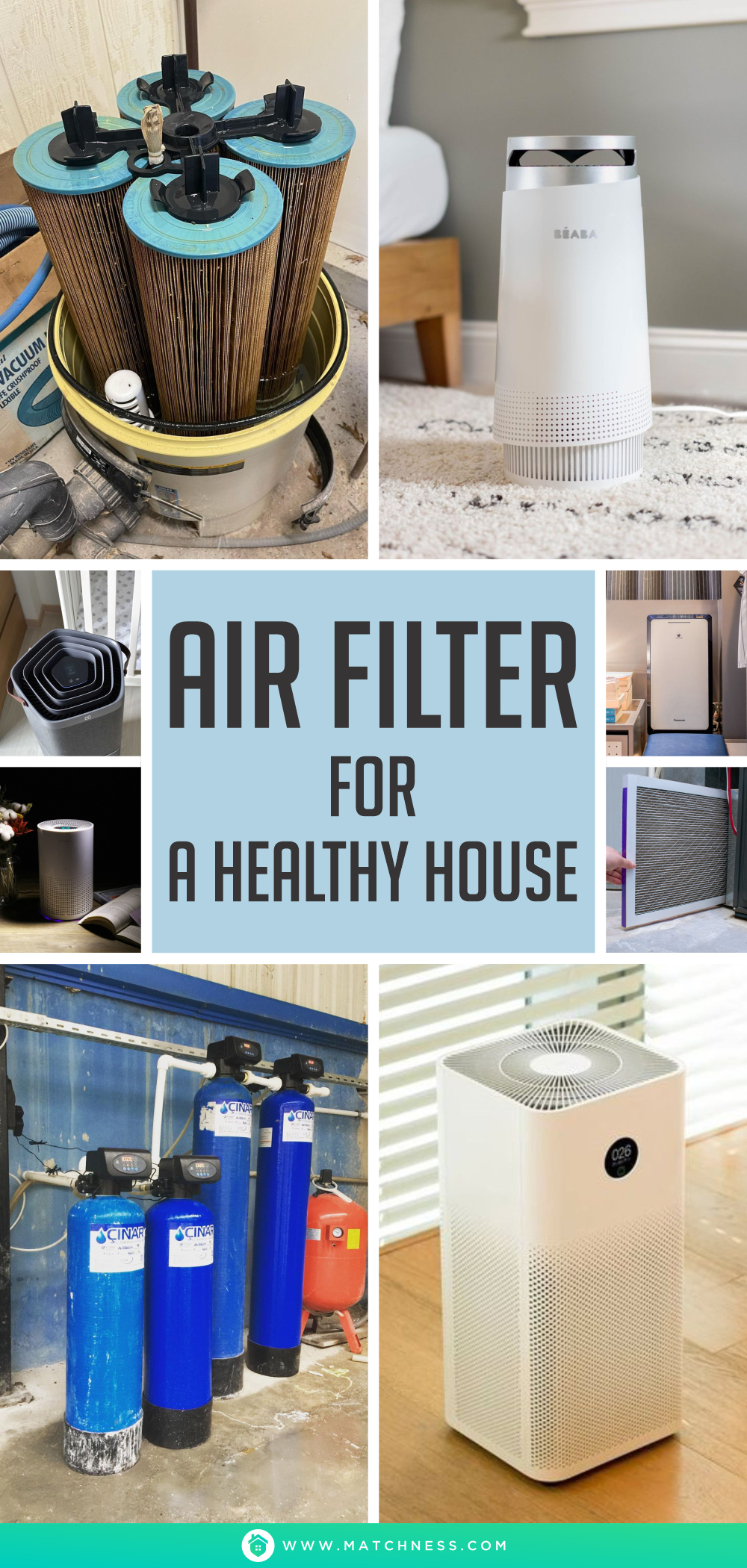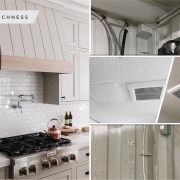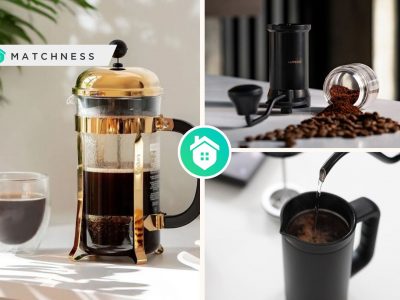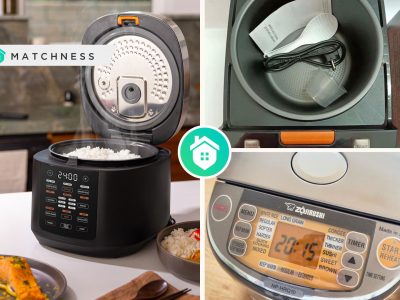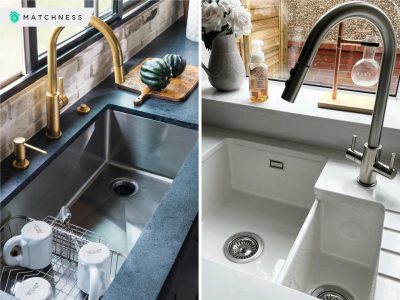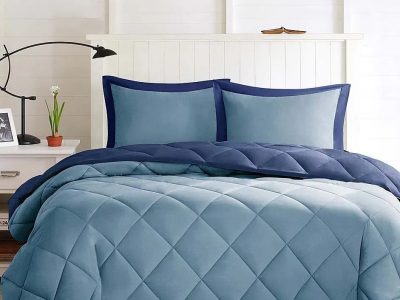It is probable that your household contains various airborne particles, such as dust, dander, mold, and other contaminants that can negatively impact the quality of the air you inhale. Simple daily activities such as brushing your pet, leaving windows open, using harsh cleaning products, or even having a central heating and cooling system can contribute to a decline in indoor air quality. However, investing in an air purifier can assist in eliminating these pollutants, leading to fresher and healthier air circulating within your home.
Research conducted by the Environmental Protection Agency has revealed that the air within our homes frequently contains more contaminants than the air outdoors, potentially causing allergies, exacerbating asthma symptoms, and increasing susceptibility to illness. Utilizing top-quality air purifiers can alleviate these issues by capturing and eliminating airborne particles from the air you inhale. To make it fair, let us provide an explanation as to why having an air filter is significant and also the cons!
Pros
- Improved air quality: Air filters can improve air quality by capturing and removing airborne particles such as dust, pollen, mold spores, and pet dander. These particles can cause respiratory problems, allergies, and other health issues. By trapping these pollutants, air filters can help to reduce the amount of airborne particles that people breathe in, leading to cleaner and healthier air. Additionally, some air filters have activated carbon or other technologies that can remove unpleasant odors or harmful gases, further contributing to better air quality.
- Allergy relief: People who suffer from allergies may find relief from symptoms such as sneezing, coughing, and itchy eyes with the use of air filters. By removing these allergens from the air, air filters can help to reduce the amount of exposure people have to them, thus reducing allergy symptoms.
- Reduced odors: Air filters can reduce odors by using activated carbon, zeolite, or other technologies that absorb and neutralize unpleasant smells. Activated carbon is a highly porous material that can attract and trap molecules of many different types of gases and odors. Zeolite is a mineral that can absorb and trap a wide range of odors and chemicals. Some air filters may also use other technologies such as ozone or UV-C light to break down and eliminate odors. By removing these unpleasant smells from the air, air filters can help to create a more pleasant and comfortable indoor environment.
- Enhanced HVAC efficiency: Air filters in HVAC systems can prevent dust and other particles from accumulating on heating and cooling coils, which can improve the system’s efficiency and reduce maintenance needs.
- Reduced cleaning needs: Air filters capture and remove airborne particles which can accumulate on surfaces and require frequent cleaning. By removing these particles from the air, air filters can reduce the amount of dust and other debris that settles on surfaces, thus reducing the need for frequent cleaning. It can also help to protect HVAC equipment from dust and debris buildup. When dust and debris accumulate on the heating or cooling coils, it can reduce the efficiency of the HVAC system, increase energy costs, and lead to breakdowns. By capturing these particles before they reach the HVAC system, air filters can help to keep the equipment cleaner and running more efficiently, reducing the need for costly maintenance or repairs.
Cons:
- Initial cost: Air filters can be expensive to purchase initially, especially if you need a large or high-quality filter.
- Maintenance costs: Air filters need to be replaced or cleaned regularly, which can add up to ongoing maintenance costs.
- Noise: Some air filters can produce noise, which may be disruptive, especially in quiet environments.
- Limited effectiveness: While air filters can help remove many types of airborne particles, they may not be able to eliminate all contaminants, such as gases or chemicals.
- Energy consumption: High-efficiency air filters can increase the energy consumption of HVAC systems, which can lead to higher energy bills.
After reading those pros and con of having an air filter, we can see that air filter is a must-have items that every house should have. So, how can we choose the best one?
1.Identify the specific pollutants you want to target: Different air purifiers are designed to target different types of pollutants such as allergens, dust, smoke, or volatile organic compounds (VOCs). Determine the specific pollutants that you want to eliminate before selecting an air purifier.
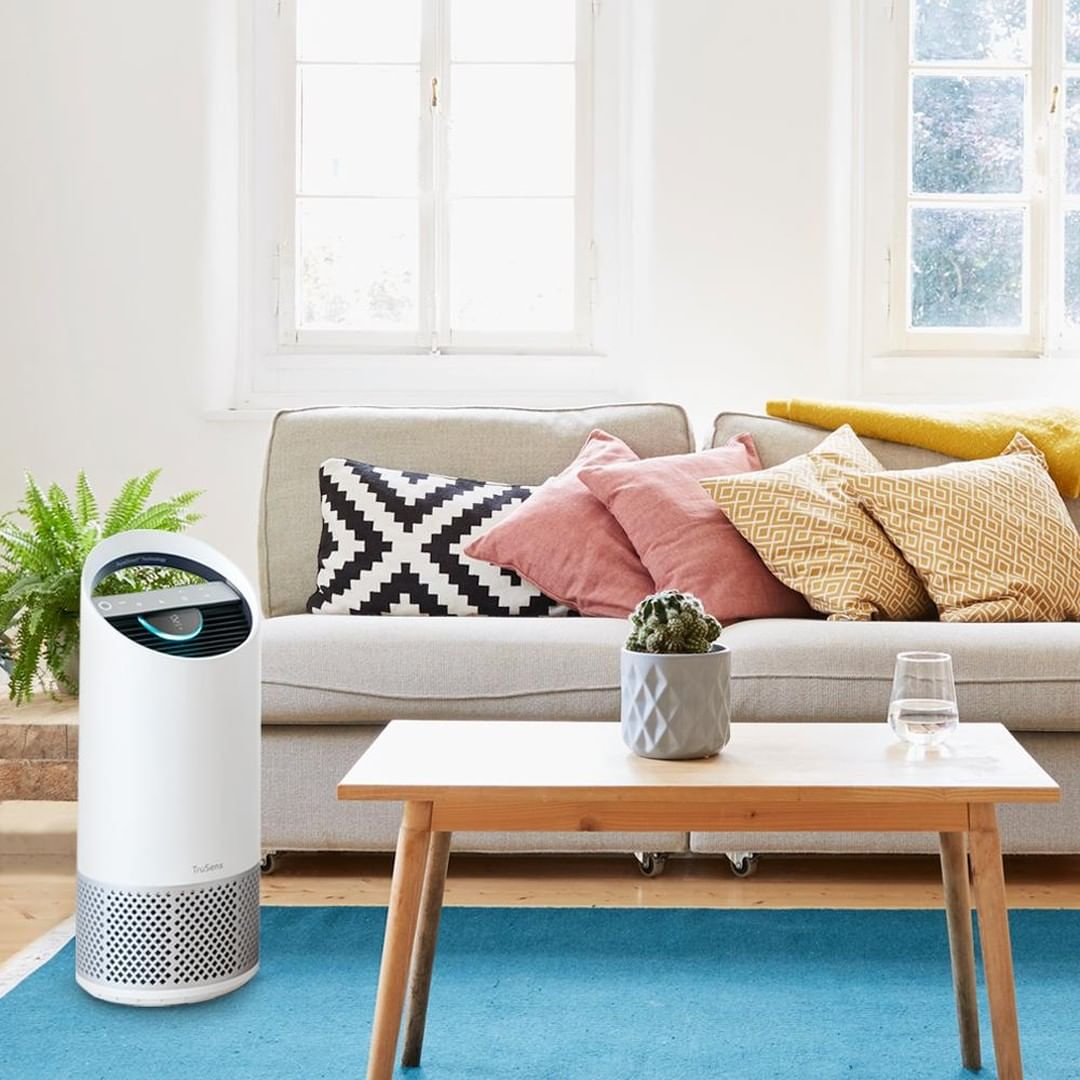
The air purifier applied to this bedroom will provide fresh and cool air throughout this room. This air purifier can easily suck up dust, smoke or organic compounds. Air Healty Home from @trusenswellness
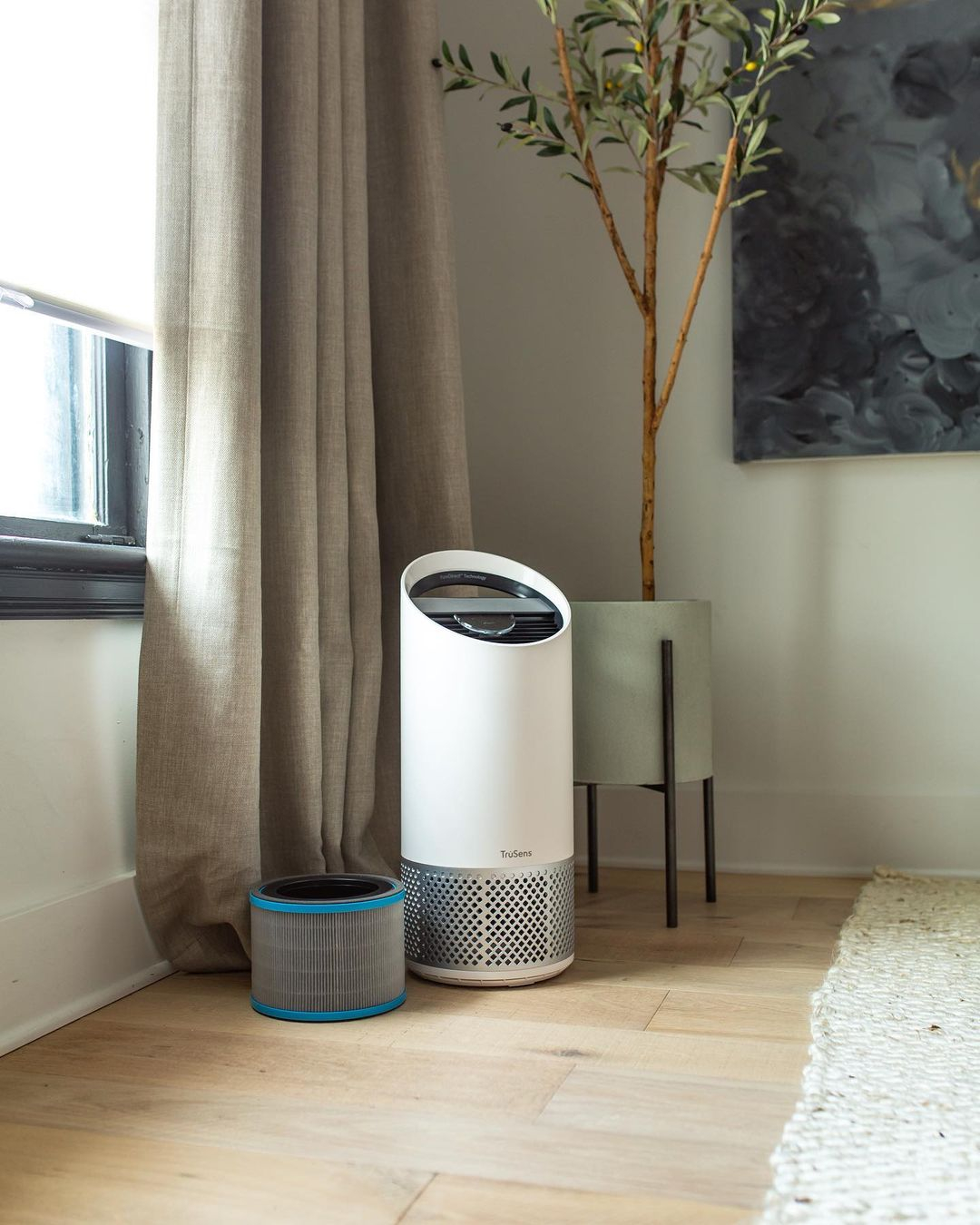
Trusens is also used as a tool to help airborne allergy sufferers by reducing the allergens that cause allergies. Placing it in the corner of this room will also give the house a charming appearance and steal the eye. TruSens Air Purifiers from @trusenswellness
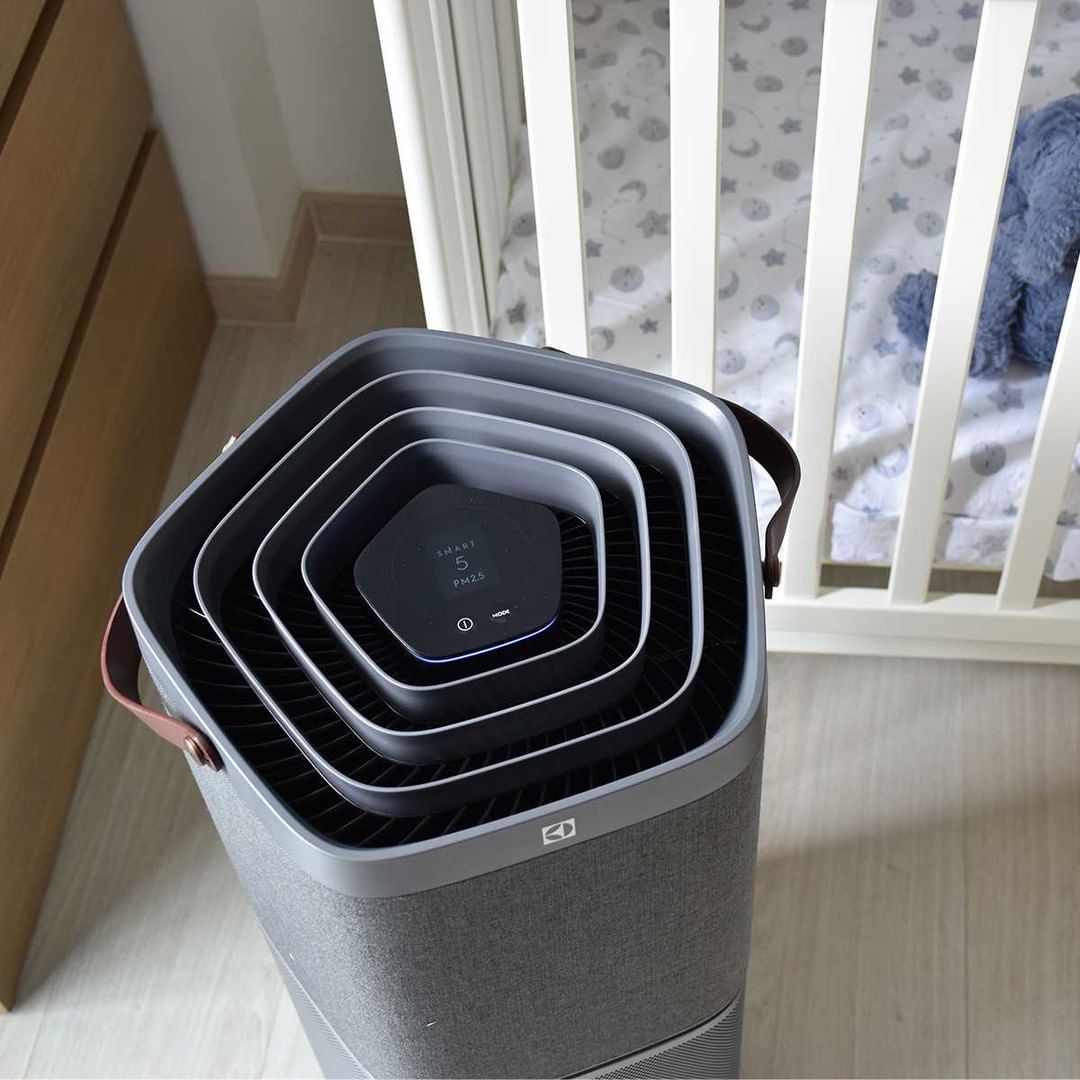
The best selection of Daikin Air Purifiers with HEPA filters to maintain indoor air quality from various harmful particles that are the same as the air you breathe. The choice of Daikin air purifiers according to the large space in your home. Air Purifiers from @electroluxarabia
2. Look for the appropriate CADR rating: The Clean Air Delivery Rate (CADR) is a measure of an air purifier’s ability to filter the air. Choose an air purifier with a CADR rating that matches the size of your room to ensure optimal air cleaning performance.
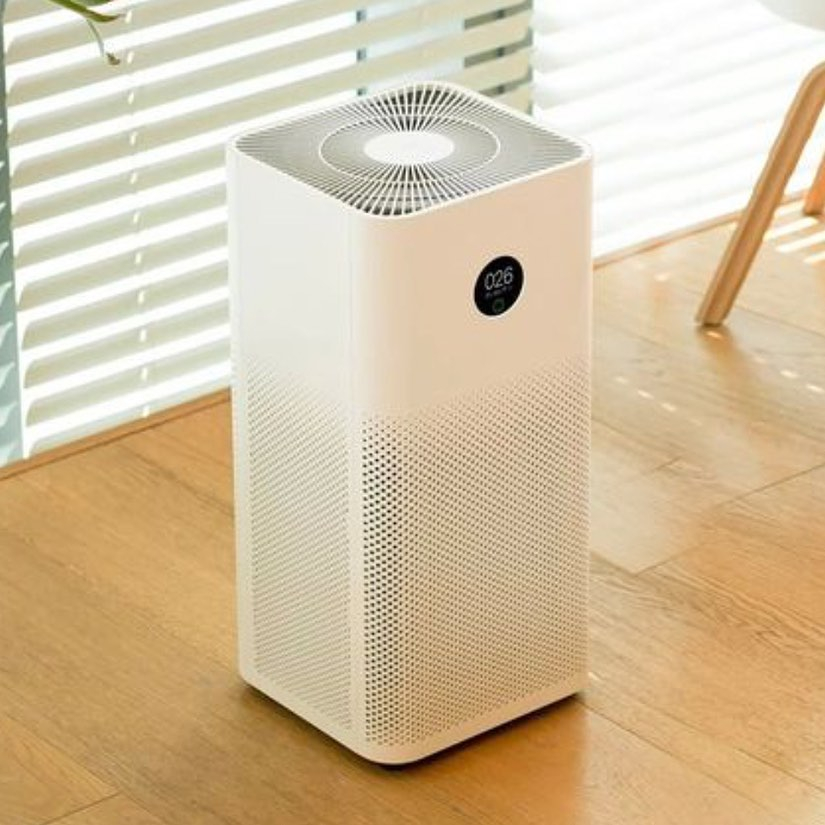
This clean air level (CADR) will clean air that has removed all particles of a certain size distribution. You can apply this air purifire 3c to your bedroom or one of the rooms in your house. Air Purifier 3C from @gadgetdiva.id
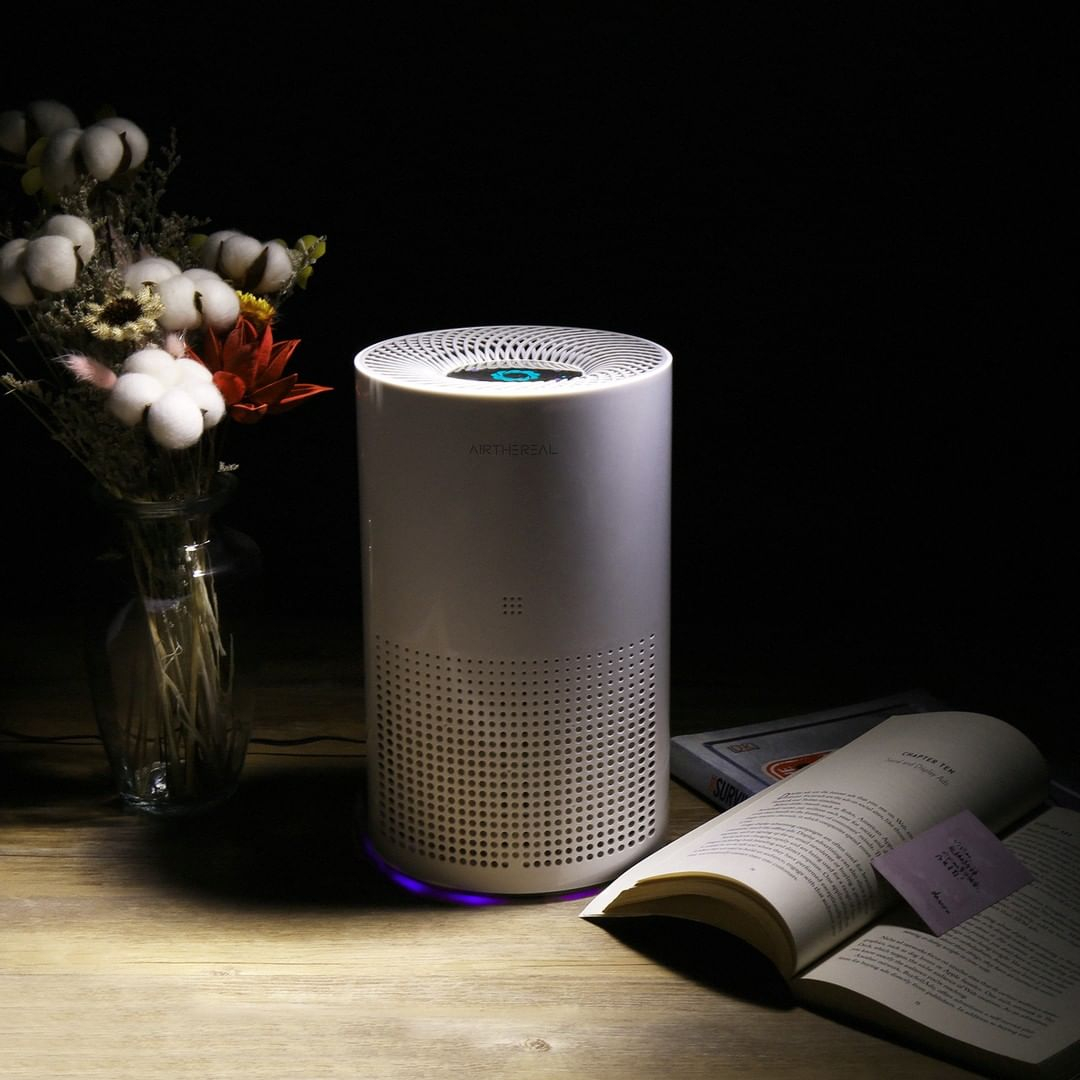
The use of a HEPA filter air purifier is very good for those of you who have allergies to pollen, dust, dander, and mold. Unpleasant odors that come from mold, mites, and cigarette smoke can be removed with this tool. HEPA Air Purifier from @airthereal
3. Consider the type of filter: Different types of filters are used in air purifiers, such as HEPA, activated carbon, and UV-C. HEPA filters are highly effective at capturing small particles, while activated carbon filters are excellent for removing odors and chemicals. UV-C technology can kill bacteria and viruses. Choose the type of filter that best suits your needs.
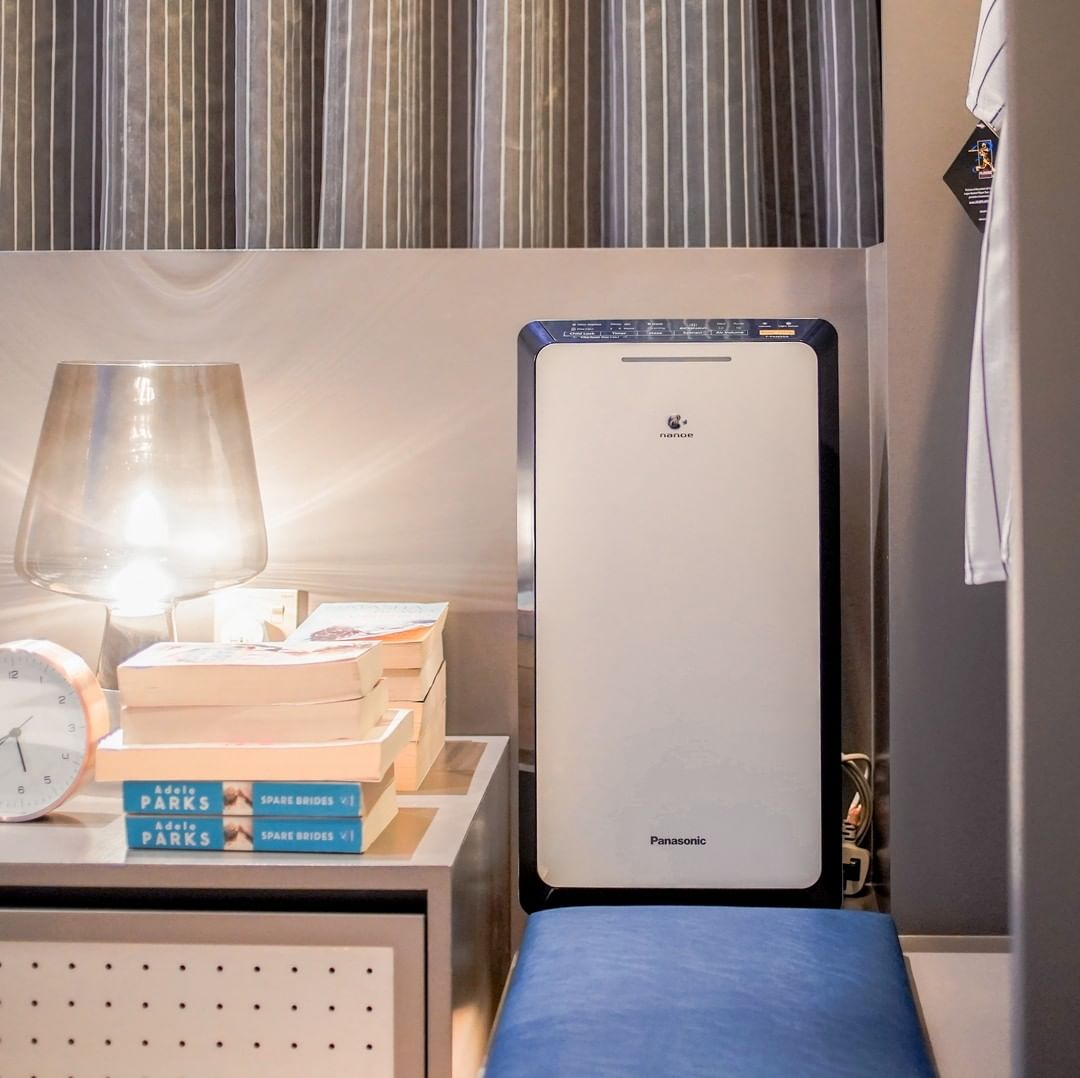
HEPA composite filters are capable of removing large particles such as dust and harmful ultrafine particles. Placing it in one of these spaces will make your home air cooler and fresher. HEPA Composite Filter from @mypanasonic
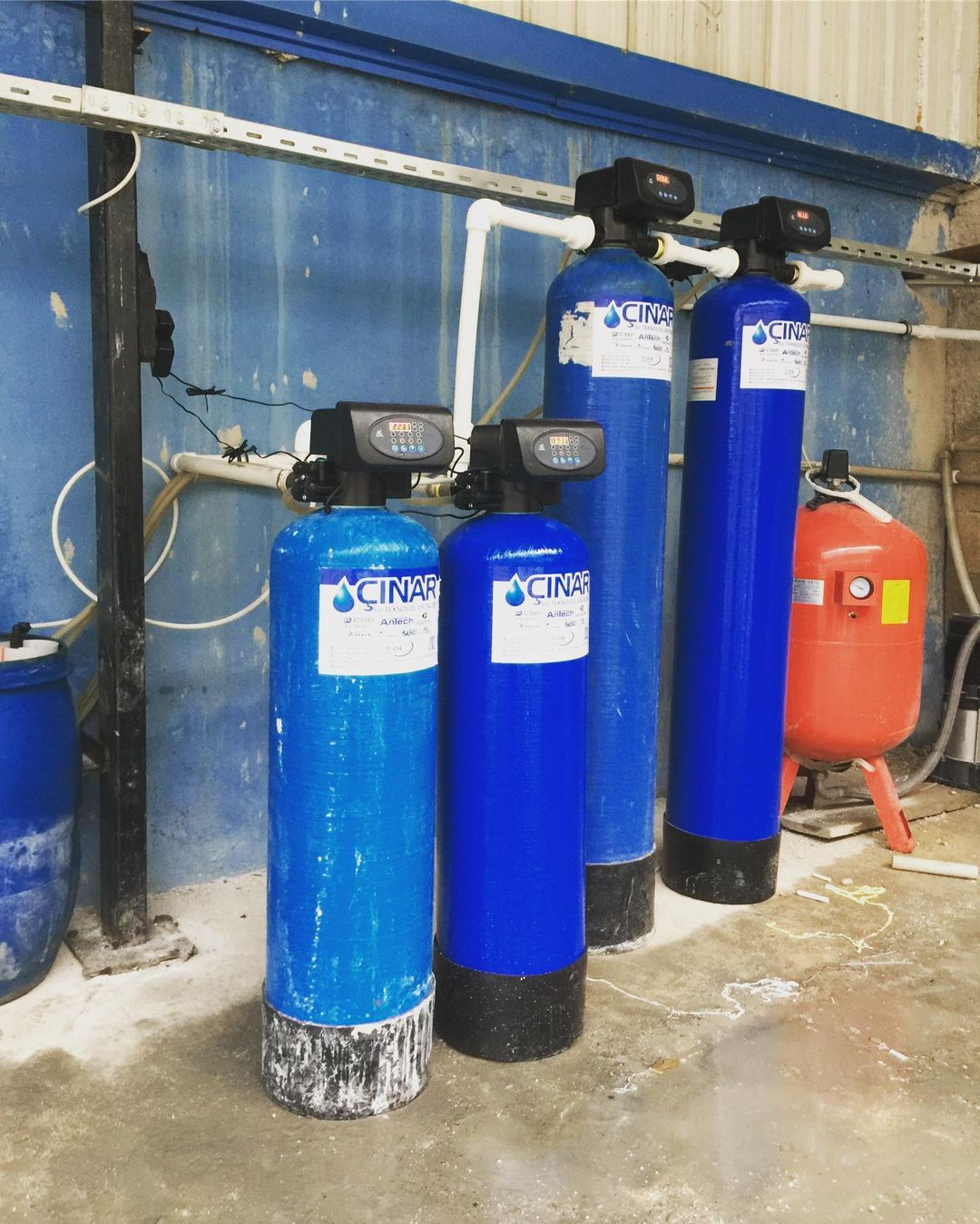
Activated carbon is a low-cost material with distinguishable properties like high specific surface area, high porosity, and desired surface functionalization. Because of that, activated carbon is diversely used for effective applications in adsorption, removal of pollutants, water treatment, and energy, etc. Activited Carbon from @cinarsuteknolojiurunleri
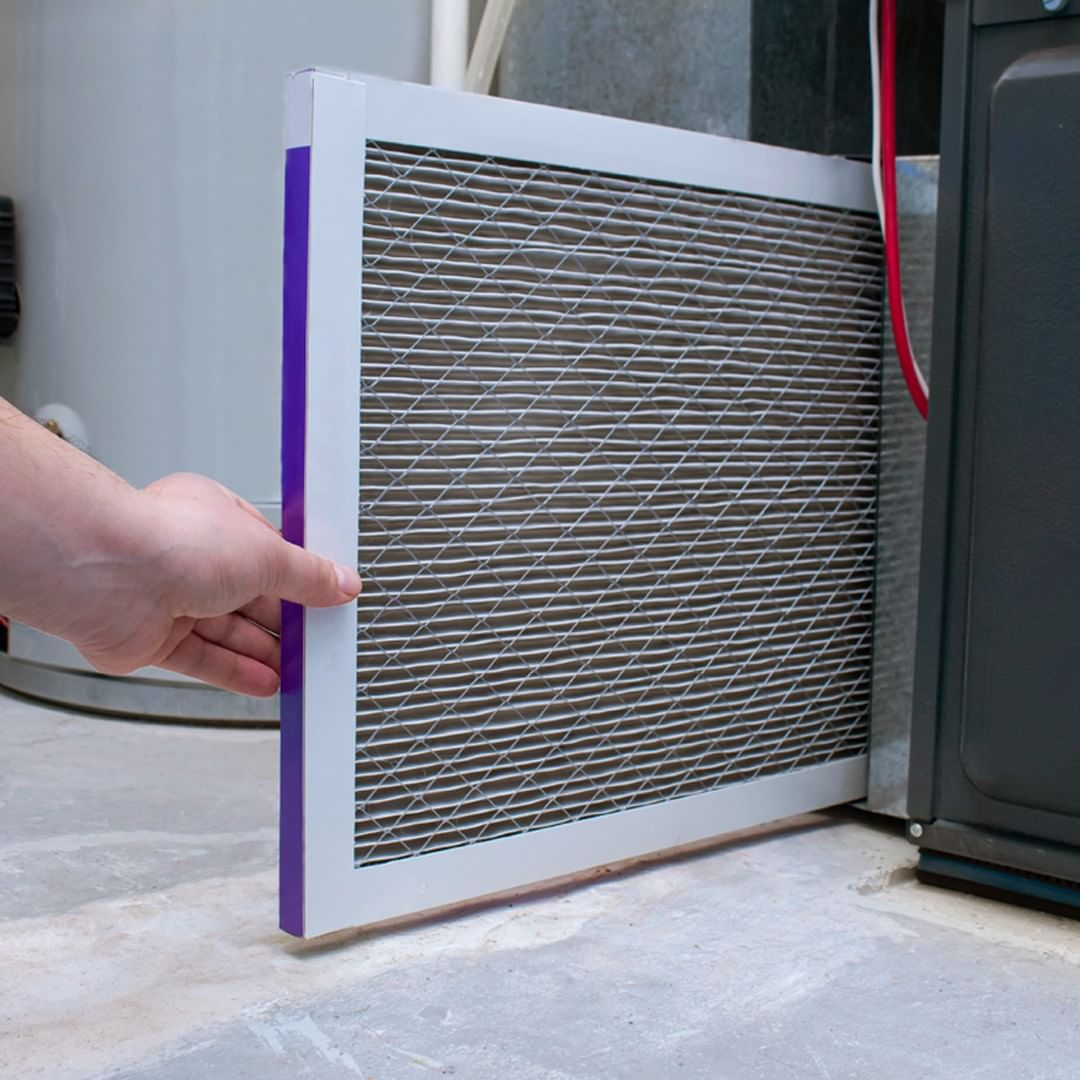
Replacing this filter will provide cool air for you to try. You can replace it once a month to give your home a clean and stylish look. Change Your Filter from @abmay.kc
4. Evaluate noise levels: Air purifiers can produce noise, so consider noise levels if you plan to use the air purifier in a bedroom or other quiet area. Look for an air purifier with a noise level of around 50 decibels or less.
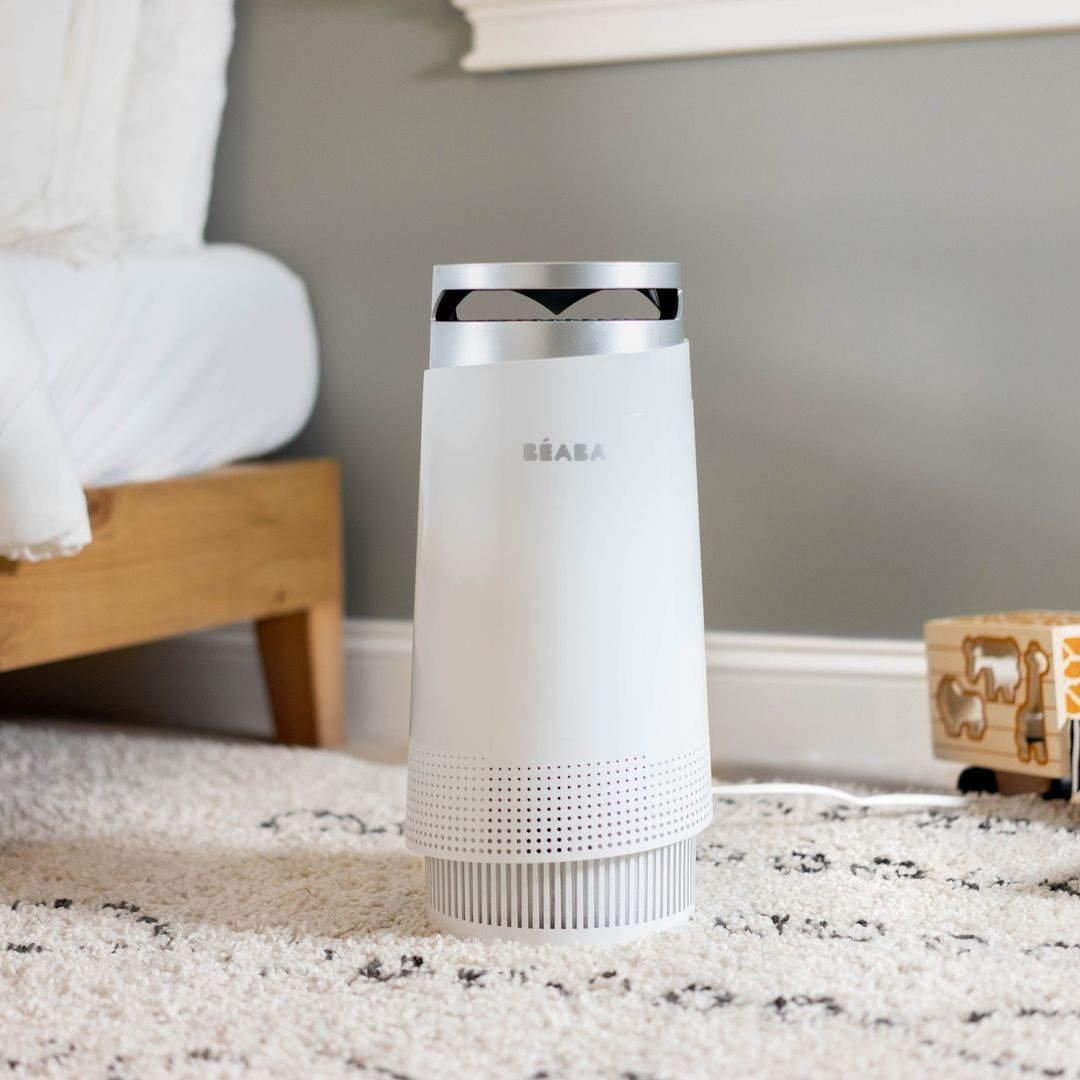
The Béaba air purifier will help reduce allergens and particulate pollution in your baby’s bedroom. It has a low noise level so it is suitable for you to apply to your bedroom. Beaba’s Air Purifier from @firstcrysa
5. Check maintenance requirements: Air purifiers require regular maintenance, such as filter replacements, to ensure optimal performance. Consider the cost and frequency of maintenance when selecting an air purifier.
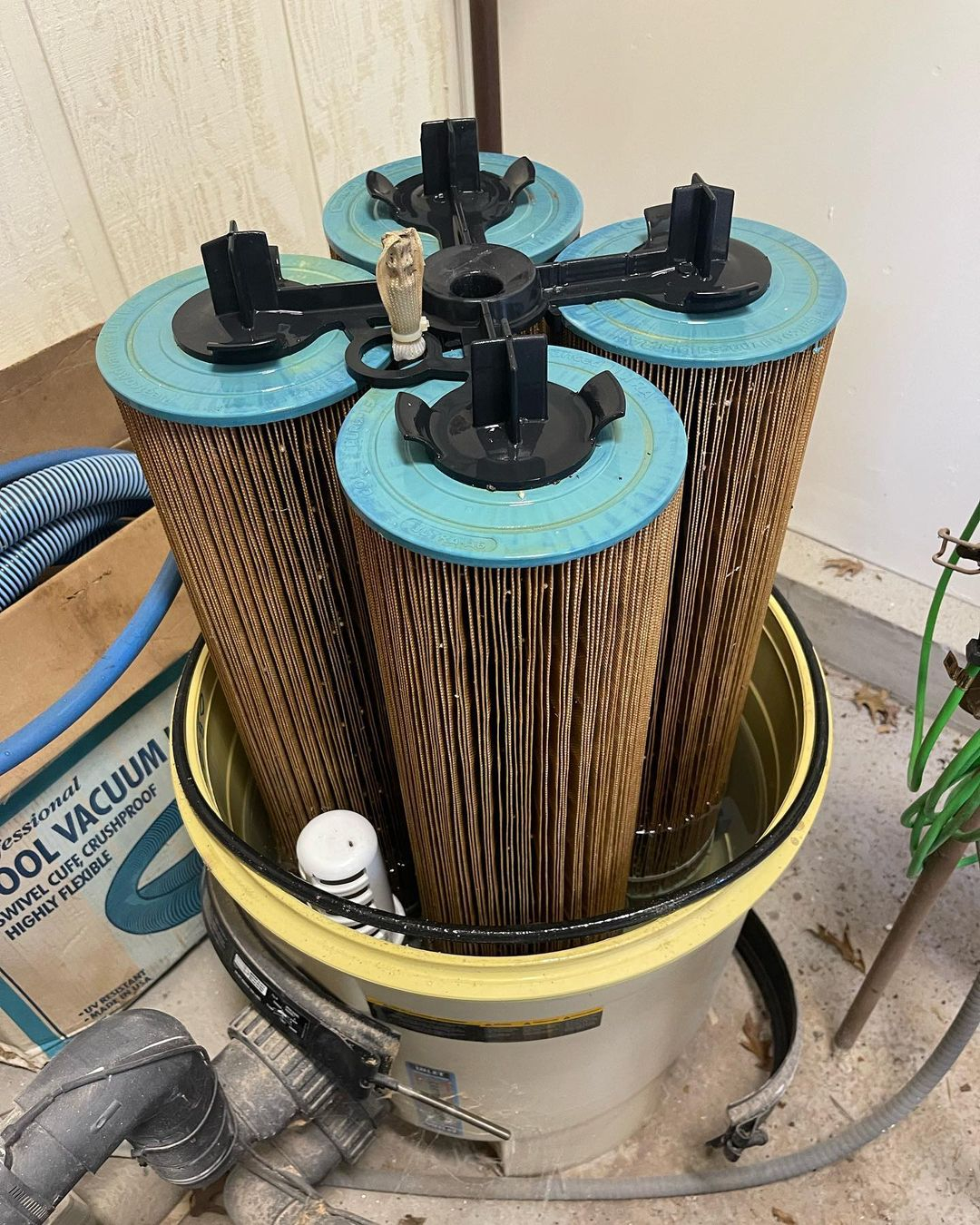
Regular replacement of the water filter cartridge helps keep your family’s water clean and fresh over the long term. WaterChef replacement filter cartridges are tested independently, providing superior filtering performance you can trust. Filter Cartridge Replacements from @diamondimagepoolservice
6. Read customer reviews: Check customer reviews before making a purchase to see how well the air purifier performs in real-world situations and whether it meets customers’ expectations.
By considering these factors, you can choose an air purifier that effectively removes pollutants from the air and fits your specific needs. It’s important to keep in mind that air filters work to keep the air in your home clean by capturing various contaminants such as dust, pollen, and germs. However, these particles have to accumulate somewhere, and the air filter in your HVAC system collects much of it. If the buildup is not cleaned regularly, it can hinder the efficiency of the unit, raise utility bills, and potentially harm your home’s air quality. Knowing how to clean your air conditioner or furnace filter is essential for regular maintenance, which can help prevent expensive repairs and ensure the system runs smoothly.
To achieve optimal results, it is recommended to clean your home’s air filters once a month and replace them every six months. It’s crucial to consult the manufacturer’s instructions to determine the appropriate method for cleaning your air conditioner or furnace filter.
Simply opening up a window allows for air exchange, but keep in mind it does nothing to filter out the air and other harmful allergens or asthma triggers that could intrude into your home.
PATRICK VAN DEVENTER
DIRECTOR OF PRODUCT ENGINEERING AT PORTACOOL


